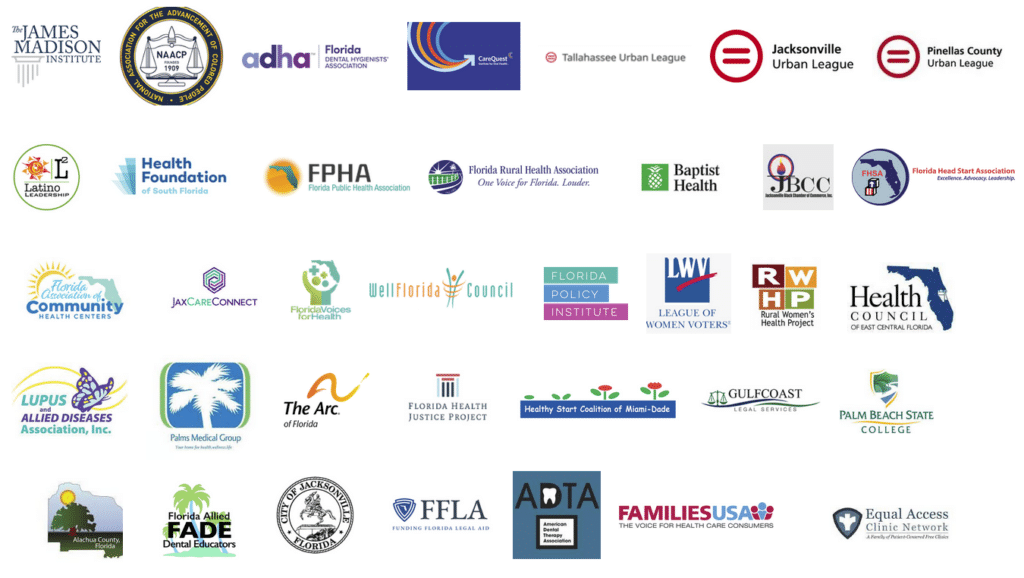
Oral health in Florida is among the worst in the nation. Millions of Floridians can’t find affordable dental care
in their communities, leading many to live in pain, miss school and work or travel long distances to find it.
When dental pain becomes unbearable, thousands of Floridians flock to hospital emergency rooms – which aren’t equipped to treat non-traumatic dental conditions. This is a HUGE cost to taxpayers. Oral health is an essential part of maintaining overall physical health, mental health and emotional well-being. More Florida leaders than ever before agree with American Children’s Campaign that Florida’s oral health crisis is a public health emergency requiring immediate attention
and action with proven solutions.

Nearly 8 in 10 Florida dentists don’t accept Medicaid. The #1 reason is the low reimbursement rates according to Florida Department of Health’s Dental Workforce survey. Medicaid reimbursement rates for dental services are significantly lower than the rates for private insurance, often falling below the actual cost of performing some procedures. For most private practices, this poses a significant financial burden. Possible paths forward include increasing reimbursement rates to a level where Medicaid is on par with private insurers and simplifying the filing and appeals processes.
These compacts would work similarly to licensure compacts for nurses, physical therapists and other professions. Dentists and dental hygienists who are licensed in one compact member state can bring their credentials with them to practice in other participating states through compact privilege. For a state growing as rapidly as Florida, this is an important part of the solution.
14 states have now authorized dental therapists to perform the most common dental procedures like fillings or placing crowns. It’s important to note they work under the supervision of dentists and are must meet the exact standards as dentists for the procedures they perform. Dental therapists have practiced in the United States for nearly 20 years and all research shows they improve oral health outcomes at reduced costs.
Medical-dental integration can help build that critical bridge between oral health and overall health. It’s an approach to care that integrates dental medicine into primary care and behavioral health. It also promotes the practice of dental providers integrating services such as screenings for chronic diseases. It is a model of care that encourages providers to plan and implement comprehensive care plans for the whole person.


Website design, hosting, and maintenance by WPTallahassee.